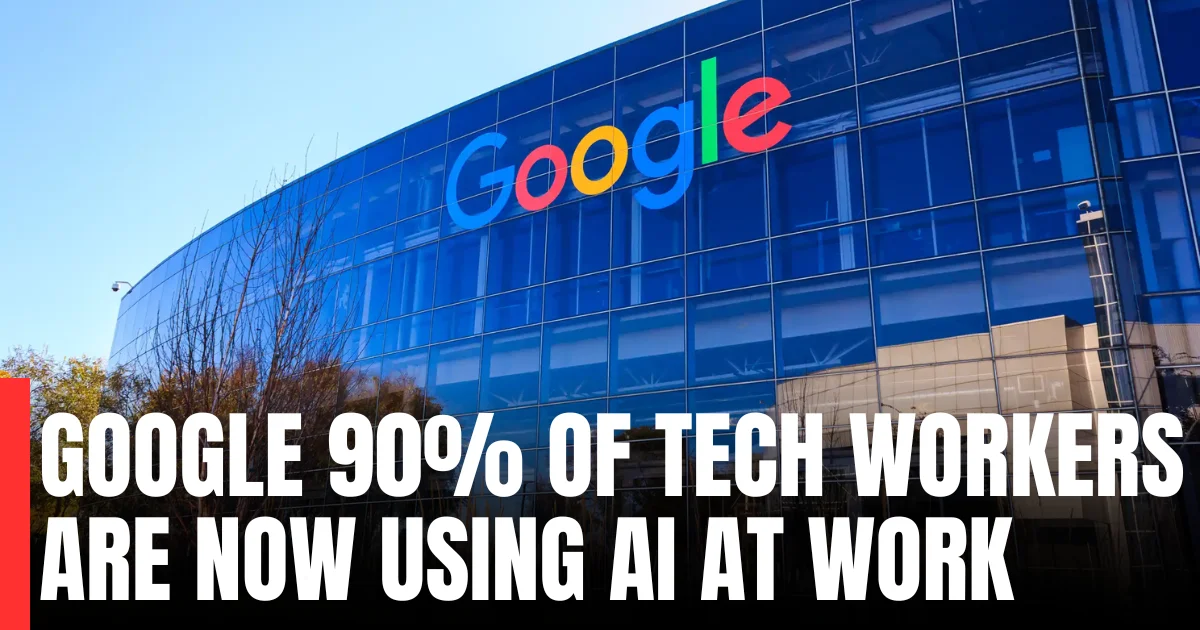Google reports 90% of tech professionals use AI daily. Discover how AI is reshaping coding, trust in AI tools, and the impact on entry-level tech jobs.
Table of Contents
90% of Tech Workers Now Rely on AI, Says Google Study
The tech industry is undergoing a dramatic transformation as artificial intelligence (AI) becomes a staple in daily workflows. A recent report from Google’s DORA research division shows that 90% of tech professionals worldwide are now using AI at work, up 14% from last year. This surge highlights both the opportunities and challenges AI presents for software development and employment trends.
Widespread AI Adoption Across Tech Jobs
The Google study surveyed 5,000 technology professionals globally, revealing that AI is increasingly integrated into tasks like writing and modifying code. Ryan J. Salva, who manages Google’s coding tools such as Gemini Code Assist, noted that most teams at Google rely on AI for activities ranging from documentation to code editing.
“If you are an engineer at Google, it is unavoidable that you will be using AI as part of your daily work,” Salva said.
Google is not alone; competitors including Microsoft, OpenAI, and Anthropic, as well as AI coding startups like Replit and Anysphere, are rapidly developing AI-powered tools to assist software engineers.
How Much Do Tech Workers Trust AI?
Despite widespread adoption, trust in AI-generated code varies. The survey found:
- 46% of professionals “somewhat” trust AI-generated code
- 23% trust it only “a little”
- 20% trust it “a lot”
Regarding code quality, 31% said AI slightly improved it, while 30% reported no impact at all.
Salva describes current AI software development tools as being between stage three and four on a scale of one to five. While AI can troubleshoot across systems, it still requires human review and multiple safety checks.
AI’s Impact on Entry-Level Tech Workers
The rise of AI comes amid a challenging environment for recent graduates. According to The New York Fed, unemployment for computer science and computer engineering graduates now surpasses fields like art history and English. Job listings for software engineers on platforms like Indeed have dropped 71% from February 2022 to August 2025.
Graduates like Julio Rodriguez have experienced the difficulty firsthand, applying to over 150 jobs before securing a role. Many agree that AI is changing the nature of software development, streamlining repetitive tasks but not fully replacing human input.
AI Streamlines Work Without Replacing Humans
Salva emphasizes that certain critical aspects of software development cannot be automated, while AI can make mundane tasks more efficient. He also acknowledges that the current surge in AI adoption may be partly due to industry hype and excitement, comparing it to trends in fashion:
Salva compared AI adoption in software development to a trendy fashion craze, saying that when there’s so much excitement and buzz around a new tool, “everyone wants to experiment with the latest innovation and see how it fits into their workflow.”
FAQs About AI Use in Tech Jobs
Q1: What percentage of tech workers currently use AI at work?
A1: According to Google’s recent study, 90% of tech workers use AI in their daily work tasks.
Q2: What tasks are AI tools used for in tech jobs?
A2: AI is primarily used for writing and modifying code, documentation, and software troubleshooting.
Q3: Do tech professionals trust AI-generated code?
A3: Trust varies: 46% somewhat trust AI code, 23% trust it a little, and 20% trust it a lot.
Q4: How is AI affecting entry-level tech jobs?
A4: Entry-level software engineers face fewer job listings and higher competition, as AI adoption changes the type of work expected.
Q5: Are AI tools replacing humans in software development?
A5: No. AI is primarily streamlining repetitive tasks, while critical thinking, problem-solving, and code review remain human-led.
Conclusion
AI is now a central part of the tech workplace, with nearly all tech professionals using it in some capacity. While it enhances productivity and automates repetitive work, challenges remain in trust, job availability for entry-level workers, and proper oversight. As AI continues to evolve, it’s clear that the technology will reshape the landscape of software development, but human expertise remains essential.

